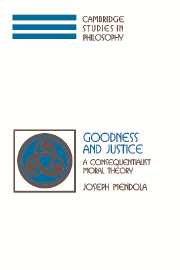BT1 6DL, Belfast, Northern Ireland, United Kingdom The
Royal Belfast Academical Institution, commonly known as 'Inst.', is a
voluntary non-denominational
grammar school for boys, founded in
1810, in College Square,
Belfast,
Northern Ireland and is a member of the
Headmasters' and Headmistresses' Conference (HMC). The school occupies an 8-acre site in the centre of the city on which its first buildings were erected; major additions in 1953, 1957, 1960, 1964, 1983, 1991, 2000 and 2003 provide modern and specialised facilities and account for half the present accommodation. In addition to 40 classrooms, there are 16 science laboratories, 2 lecture rooms, 2 gymnasia, Art and Music departments, Sixth Form Centre, Common Hall, Dining Hall and an indoor heated swimming pool. A new sports hall has been added and Christ Church, a state of the art facility containing a new library, careers suite and 3 IT suites, has recently been opened.
For the first three years boys normally follow a common curriculum: in the fourth year the curriculum is still general but certain options are introduced, and at the end of the 5th Form, boys sit the examination for the Northern Ireland G.C.S.E. Subjects studied at AS/A2 level in the sixth form include English Literature, Modern History, Geography, Economics, French, German, Spanish, Media Studies, Latin, Technology, Mathematics, Physics, Politics, Chemistry, Biology, Music and Art.
Rugby football and hockey are played in the winter; athletics, cricket and tennis occupy the summer months; badminton, fencing, shooting, rowing, squash and swimming (including water polo and life-saving) take place throughout the year. Teams representing the school take part not only in matches and activities within Northern Ireland, but also in events open to all schools in the United Kingdom.
There are numerous clubs and societies, a school orchestra, choir and band, a contingent of the
Combined Cadet Force, Scout and Venture Scout units and a Community Service Group.
Over four-fifths of each year's leavers go on to university or to full-time courses in other institutions of higher and further education.
In addition to a large number of prizes throughout the school, endowed scholarships offered in the sixth form are tenable for travel or at university.
Candidates for admission to the Main School should be under 12 on July of the year of admission and applications must be received by mid-February. Boys who are regarded by the Department of Education for Northern Ireland as qualified for grammar school education have their tuition fee paid by their local Education and Library Board. There is an annual capital fee for the 2005/06 academic year of £690.50 and £45.75 stationery. For new pupils there is also an insurance charge of £15.75 and a refundable book deposit of £65. Scholarships are awarded to the school boys whose work shows outstanding progress during their school career.
The school motto is "Quaerere Verum" - To seek the truth.
History Miss Janet Williamson replaced Mr Michael Ridley in January 2007. Her academic record includes a MA in Geography from St. Catherine's College, Oxford and a National Qualification for Headship. She attended Glenlola Girl's Grammar School in Bangor Northern Ireland, and was Headmistress at
Antrim Grammar School for 6 years before joining the staff at RBAI.
Chairman of the Board of Governors - Sir
Kenneth Bloomfield Principal - Miss Janet Williamson
Vice Principals - Alan McKinstry B.Ed., P.G.Q.Dip. G.C. and Brian Todd B.A., M.Ed., P.G.C.E.
Dean (Head of Pastoral Care) - Eamon Foster B.A., M.Litt., P.G.C.E.
Head of English:
Frank Ormsby, M.A.
Head of Mathematics: William Collins, B.Sc., M. Sc., Dip. Ed., Dip LBC
Head of Science: Dr Caroline Greer, B.Sc., Ph.D., P.G.C.E.
Head of Modern Languages: Dr Robert Cotter, M.A., P.G.C.E., M.Ed., M.Th., D.Phil (Oxon.)
Head of Geography: Neil McClements, B.Sc., P.G.C.E., PQH(NI)
Senior staff Dill - (House Colour - Red)
Jones - (House Colour - Yellow)
Kelvin - (House Colour - Green)
Pirrie - (House Colour - Blue)
Stevenson - (House Colour - Brown)
Larmor - (House Colour - Black)
 Houses Lord Kelvin
Houses Lord Kelvin, physicist. (Kelvin house is named after him.)
Thomas Andrews, Chief designer at
Harland and Wolff shipyards and
RMS Titanic architect.
Lord Carswell of Killeen, Law Lord and former Lord Chief Justice of Northern Ireland.
Lord Lowry, former Lord Chief Justice of Northern Ireland.
John Miller Andrews, 2nd
Prime Minister of Northern Ireland.
Bowman Malcolm (1854–1933), railway civil and mechanical engineer
William Pirrie, Viscount Pirrie, Chairman of
Harland and Wolff 1895-1924. Pirrie House is named in his memory.
Paul Smith, Founder of
Celador, he was the creator of the popular game-show '
Who Wants to Be a Millionaire?'.
Mark Pollock, blind international rower and entrepreneur.
Sir
Joseph Larmor,
Lucasian Professor of Mathematics,
Cambridge University 1903-1933
Baron Mawhinney of Peterborough, a member of the Cabinet until 1997 and a Member of Parliament until 2005, currently Chairman of the
Football League.
Dawson Stelfox, the leader of the 1993 Irish Expedition to
Mount Everest and the first Irishman to reach the summit.
Sir
Kenneth Bloomfield, former Head of the Northern Ireland Civil Service. Current Chairman of the Board of Governors.
Paul Rankin, television chef and owner of a chain of cafes in
Belfast.
Tim Collins, Commanding Officer of the
1st Battalion, Royal Irish Regiment in 2001 during
Operation Telic. After his service in the
Iraq war, he was promoted to a full Colonel. He has recently retired.
Sam Lee, Between 1891 and 1898 he won nineteen international caps for Ireland. Captained Ireland in the 1892-1893 season again in 1895-1896. In 1894 he was a member of Ireland's first Triple Crown triumph. 1904 he refereed the Scotland v England match.
Robin Thompson, captain British and Irish Lions rugby team 1955, South Africa
Michael Longley, poet
Derek Mahon, poet
R.B. McDowell, fellow of Trinity College Dublin, the most prominent 18th century historian in Ireland
Sir
Donald Currie, shipping magnate and founder of the highly prestigious Currie Cup rugby competition held in South Africa
Charles Monteith, prominent London publisher, he became the first person to accept William Golding's "Lord of the Flies"
Lembit Öpik,
Liberal Democrat MP and Spokesperson on Northern Ireland and Wales.
Stephen Nolan,
BBC radio and television presenter.
David Johnson,
U105 local radio presenter.
Kenneth Montgomery, principal conductor, Ulster Orchestra
Sports and Societies The school offers a wide selection of sports.
Rugby Union is the dominant sport. Inst have won the
Ulster Schools Cup outright 29 times along with 4 shared titles, putting them in second place to
Methodist College Belfast's 30 victories. The school's coaches are Richard Hedley and Gavin Monteith. The school boasts the highest representation of British Lions and Irish Rugby players in the British Isles.
Unlike some other grammar schools in Ireland, which play Gaelic Games or Rugby to the exclusion of
soccer, soccer is played at Inst with 3 senior teams regularly competing in league and cup competitions, although it is not played below 5th Form.
Sport The Music Department is overseen by Philip Bolton, who in his time at the school has managed to create an award winning musical community.
Other notable figures in the music department are:
The music performed is of all varieties and styles. In one concert, a listener could be treated to choral, jazz, gospel, classical, modern classical, rock and alternative in the space of 2 hours. Concerts have a reputation of being incredibly different to other school performances, with plenty of visual aspects and also frequent light hearted humour.
Among public performances and TV recordings, the music department have two major concerts a year in November and March, along with the annual
Carol Service, details may be found on the RBAI Official Website.
Mrs Ann Reid, a distinguished Violin Performer and Concert Pianist, who tutors both of these instruments in the school. She holds qualifications from the Royal Academy of Music, London. She accompanies much of the Music performances on the piano.
Mrs Antoinette McMichael, full time Music teacher in both Inchmarlo Preparatory and the main school. She has gathered much respect through her work in the preparatory department, for which she is the director of music, where the 2007 production is "The Little Shop of Horrors".
Music The school's debating society, more properly known as the Royal Academical Debating Society, is the oldest continuously extant body of its kind in Irelandand is overseen by Chris Leathley. The society meets regularly at both junior and senior level and aims to develop initiative, confidence, and an appreciation of the culture of debate and civilised argument. Debates are lively, sometimes controversial, and provide a platform for social, political and cultural debate articulated in a considered and eloquent manner. The inaugural RBAI Invitational Debating Tournament was held in January 2007, with teams from
Bangor Grammar School,
Victoria College, and
St. Malachy's College taking part. The event was a great success, and will continue in future years. The school debating team won the
Northern Ireland Schools Debating Championship in April 2007, defeating
Thornhill College,
Derry in the final at
Stormont.
Debating Another prominent society is that of the Combined Cadet Force (CCF). With both RAF and Army sections the Inst CCF contingent is regarded by many as one of the strongest in the UK. The Army-section is the current holder of the Northern Ireland Cadet Championship Trophy for Team skills (having won the trophy ten times in the past eleven years). A member of the contingent is also the holder of the United Kingdom Land Forces, Cadet Leadership Course, best cadet award, making him the best cadet in the UK. Various other trophies are held, both individually and collectively for performance in military and civil skills.
Old Instonians R.B.A.I. also has a preparatory department (Inchmarlo), founded in 1907 and now set in a 6 acre site on Cranmore Park, off the Malone Road in South Belfast. Inchmarlo House was the former home of Sir William Crawford, a Director of the York Street Flax Spinning Mill.
It employs 11 full-time staff and caters for boys aged between 4 and 11 whose standard uniform consists of traditional school-caps, shorts, knee-high socks, school-blazers and leather satchels. It constantly attains impressive results in the '
11 plus' examination with 75% of pupils gaining an 'A' grade. Of those, approximately 99% (around 40) transfer to the main school every year.
The Headmaster of Inchmarlo Preparatory School is Alan Armstrong, and his Vice Principal is Malcolm Guy.



 Houses
Houses
 Touring and New Album
Touring and New Album

 Early life
Early life Non-incorporated organized territories
Non-incorporated organized territories
 Early life
Early life Political activism
Political activism Legislative branch
Legislative branch